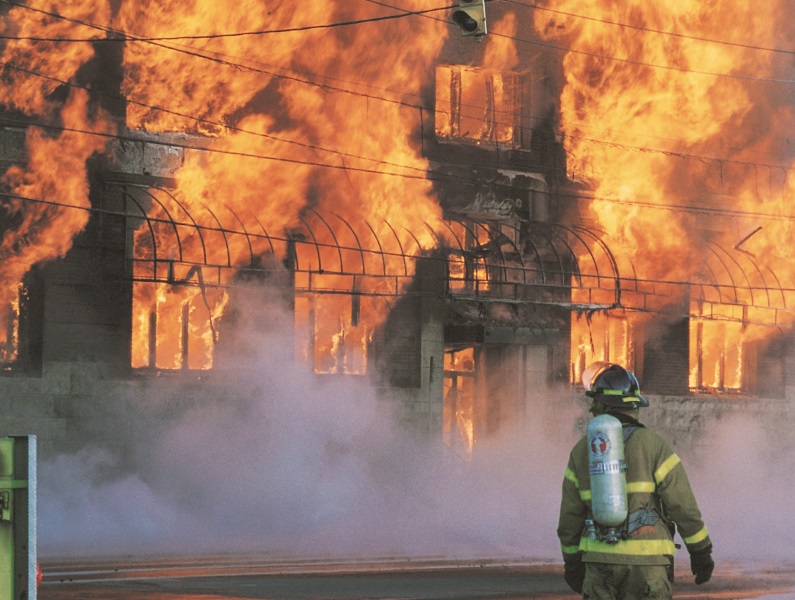
What is a “desktop” appraisal?
A “desktop” appraisal is a qualified appraisal performed without a physical inspection of the subject property. Information on the property may be provided by the client to an appraiser, obtained by an appraiser from a previous appraisal or public sources, or a combination of both.
What to know about a “desktop” appraisal?
Regardless of the source of information, the reporting is going to have a clear qualifying statement that no physical inspection has occurred at the effective date and the appraiser has relied on information believed to be true. The appraiser will look to verify any information from applicable sources regarding the property however; reliance on third party information will certainly occur and be clearly stated in the report in the form of an Extraordinary Assumption, Hypothetical Condition, and an Extraordinary Limiting Condition.
What considerations should be examined to validate the applicability of a “desktop” appraisal?
One of the first considerations prior to arranging a “desktop” appraisal would be the use of the report. While you may be the client of record, clients often have third parties that would rely on the reporting for a variety of uses such as asset based financing or insurance placement. It is imperative that you confirm with all additional users to ensure a qualified report without inspection would be sufficient for the intended use.

The second consideration one needs to make is to ensure that the required information can be gathered completely and accurately and provided to the appraiser. When completing a “desktop” appraisal an appraiser will have a significantly larger data request regarding the specified property, as the appraiser is not physically inspecting the assets themselves. The client would be responsible to be the “eyes” of the appraiser meaning someone on site will need to gather information such as plans, specifications, photographs, etc. of the subject property.
When does a “desktop” appraisal fit?
The often misnomer around “desktop” appraisals is that it is a cheaper appraisal option. If the reason you are considering a “desktop” appraisal were to save cost, we would recommend reconsidering. A “desktop” appraisal may save the time associated with the inspection process; however, that time is typically entirely offset in coordinating data collection and reviewing and verifying the information to complete the reporting. Often the professional fees associated with a “desktop” appraisal can be identical to a full appraisal unless very good asset records and property information already exists. Where assets are remote in nature, the “desktop” option does assist with cost savings involved with travel and disbursements.
Some areas where a “desktop” appraisal may be a good fit would be as follows:
- Assets that have been previously (and recently) inspected/appraised and an update is required;
- Assets whose location are significantly remote or significantly spread out, however the assets are similar in nature or scope;
- Assets where access simply cannot be provided due to restrictions for entry;
- Farmland during the winter when the subject property (eg. the land) is buried in snow and thus is hidden from sight.
Closing
A “desktop” appraisal is a useful tool an appraiser has to complete a appraisal for a client with unique circumstances around access to their assets. If you are considering if a “desktop” appraisal will work for your current appraisal needs, you should consider all users of the reporting (you don’t want to go back after the appraisal because your user will not accept the reporting), as well as your ability to provide the appraiser all relevant information on the property. When the circumstances as well as the use aligns, a “desktop” appraisal may be the right appraisal fit for you or your client’s needs.
To inquire about your valuation needs, Contact Us today!

“A statement of values (SOV) is a report that an insured submits to an insurer. It details the amount each property that will be covered under a policy is worth. The insurer then bases the insured’s premium on this report.
To avoid underinsurance, the statement of values must be accurate and comprehensive. It must not only provide the amount for each property in every location but it must also list all the insurable items in each property, such as machinery and other equipment.
In order to ensure the accuracy and comprehensiveness of their statement of values, it is advised that the insured get the assistance of a finance professional, such as a property insurance broker, when drafting their SOV.” (1)
When you accept your statement of values, it is your declaration to the insurance brokerage and the insurance company that the composition and valuation of the property contained is accurate. How do you know if the numbers are accurate and what are the consequences if they are not?
First, let us explore where these numbers may have come from. Have you recently had a professional valuation completed by an accredited firm? If so, you can jump to the next paragraph. Did your numbers come from a dated valuation or perhaps original cost and you have applied an inflationary index each year? If so, how did you come up with your index and how long have you been indexing these? Have you accounted for changes to property or machinery and equipment? Have you accounted for freight, installation and any other considerations in the replacement of your property? Without answers to these questions, you may be at risk of insuring your property with inaccurate values.
Next, what is the risk associated with the accuracy of these numbers? The best case scenario is to be accurately insured; you avoid both the over-payment of premium as well as the risk of co-insurance penalties (being under-insured). If you are over-insured, you are paying too much premium. In the event of a loss, you may not receive the excess insurance you placed and those premium dollars are lost. Even worse is the risk of being under-insured and facing a co-insurance penalty.
Co-insurance penalties would apply to policies with a co-insurance clause. A co-insurance clause is written into an insurance policy to spread the risk between parties. The most common co-insurance limit is 90%, which means a client is responsible to insure to 90% of the replacement cost of their property’s value. So for a building that has a replacement cost of $1,000,000 with a 90% co-insurance clause, the client must insure to a minimum of $900,000. The biggest concern to a client failing to meet the minimum co-insurance requirement is the co-insurance penalty.
This example will explain better:
Using the above example, the insured, selects an insurable limit of $750,000 based on historical records in their files (should be $900,000 due to 90% coinsurance clause). Policy has a $1,000 deductible. The building has a fire and there is a $250,000 loss. During the adjusting of the claim, the insurance company will see that the client did not meet the coinsurance requirement and invoke the coinsurance penalty.
The penalty is calculated as follows:
Amount insured to divided by amount should have insured to and multiplied by amount of loss due to claim = amount insurance policy will pay for claim.
$750,000 (insured) / $900,000 (should have insured) X $250,000 (loss) = $208,333 will be paid by insurance company.
The insured will be out of pocket over $40,000 (rather than just the $1000 deductible if they had insured to $900,000).
So what does it imply when you accept your statement of values and send them back to your broker? It means you are confident in the numbers and assume the financial risks of any inaccuracies in a loss scenario. If you are reviewing your statement of values, and do not know if you can trust your numbers, you should consult your broker to look at options to develop the right values.
Call Suncorp Today.
REFERENCES:
Statement of Value (SOV). Retrieved from https://www.insuranceopedia.com/definition/509/statement-of-values-sov-insurance
Picture This Scenario
A fire breaks out at your property and within minutes a major portion of the building and its contents are lost. The fire department responds promptly, but many of the assets not lost to fire are lost to smoke and water damage. Your initial reaction would be to contact your insurance broker. When they report the claim to the insurance company, an adjuster is appointed to handle the claim. The adjuster will ask questions such as; How much is the property worth now in terms of current construction? Without an up-to-date appraisal, you could be scrambling to try to establish replacement costs for your assets and possibly find yourself under insured.
You Are Responsible
In the event of any loss where an insurance claim needs to be processed, the onus is always on you, the insured party, to provide “proof of loss”. An appraisal provides that proof accurately and immediately, when kept up-to-date.

Do You Know The Current Value Of Your Assets?
If you are under-insured and suffer a major loss, this could result in dire consequences. Many property policies contain a co-insurance penalty. Alternatively, if you are over-insured, you are paying for extra insurance you cannot claim. An accredited appraiser can determine the replacement cost of your building and content assets, in accordance with your insurance policy.
Asset values are changing continuously
Inflation can increase the replacement cost of your building;
Certain building systems become obsolete;
Buildings are expanded and renovated;
Imported components (such as HVAC equipment) are subject to foreign exchange fluctuations;
Machinery and other equipment are replaced, sold off, retired, or become obsolete (particularly with Information Technology).
READ: Cost Appraisals vs Value Appraisals – What Are The Main Differences?
What are the Benefits of an Insurance Appraisal Program?
Up-to-date appraisal reports allow for quick loss settlements;
Insurance premiums are based on investigated, not arbitrary, values;
A reputable appraisal company backs what it says with professional liability insurance;
An appraisal avoids any under-insurance penalties.

Did you know?
• Suncorp Valuations has been providing insurance valuations to its clients across the globe since 1960;
• We are the insurance appraisers of choice for some of the largest insurance companies in the world;
• We have expanded our service line to include value added professional services in the areas of loss prevention, including but not limited to playground audits, fleet surveys, custom premises liability and crime surveys.






